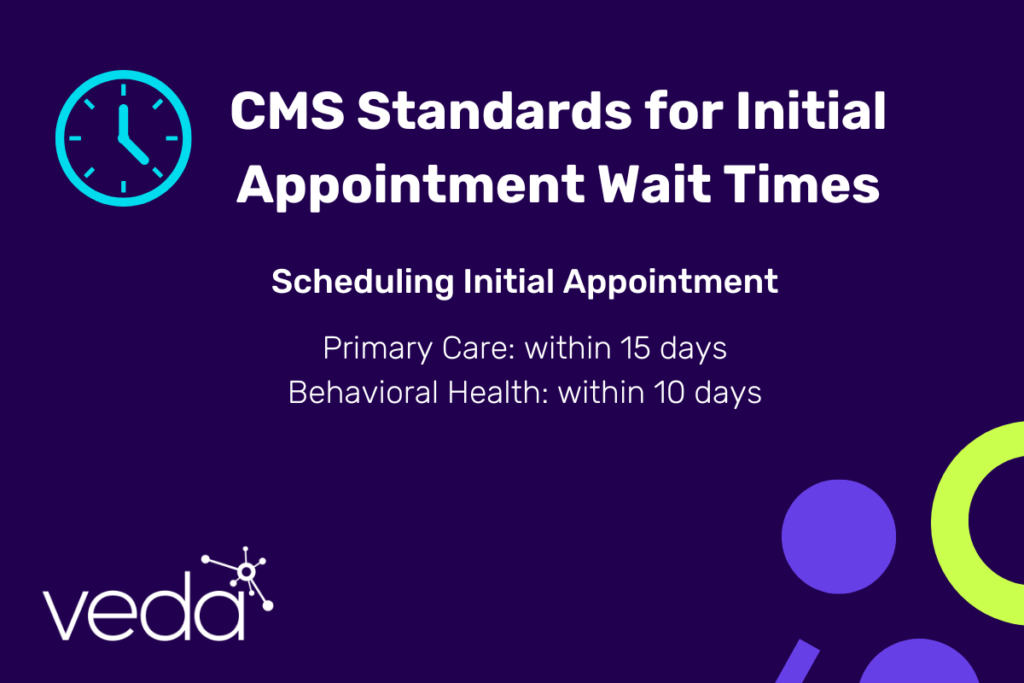Spring 2025 Highlights on Federal and State Regulations
As the first quarter of 2025 draws to a close, the federal government and various states have wasted no time in implementing enhanced provider directory reforms aimed at ending ghost networks and increasing healthcare access.
New Federal Wait Time Standards
Effective January 1, 2025, Qualified Health Plans (QHPs) on the federal exchanges must meet strict new standards for initial appointment wait times. Specifically, new patients must be able to schedule an appointment 90% of the time with primary care and behavioral health appointments within 15 and 10 days, respectively.
Compliance with these new wait time requirements must be confirmed by third-party entities hired by, but independent from, health plans. Specifics can be found in the CMS’s Appointment Wait Time Secret Shopper Survey Technical Guidance.
Completed surveys must be submitted to CMS by June 13, 2025 (and the second Friday of June annually moving forward).
New York Behavioral Health Regulations
Effective July 1, 2025, New York commercial health plans must follow the Department of Financial Services’ network adequacy regulations for behavioral health services.
These new regulations mandate that the initial appointment for behavioral health care must occur within 10 business days of the request or 7 calendar days following hospital discharge. Health plans that are unable to meet these time frames must offer out-of-network mental health or substance abuse coverage at in-network rates.
Health plans must also verify the accuracy of their behavioral health directory at least annually and include a host of additional information, including telehealth, languages spoken, facility affiliation, and restrictions on the scope of care (e.g., age or mental health conditions treated).
Maryland Provider Directory Legislation
Effective October 1, 2025, health plans in Maryland must confirm that their online directories are accurate as of the date of posting, and commit to updating their online information within 2 days of receiving notice of a change from a provider (15 days for dental carriers). Every 90 days, the accuracy of the provider directory must be verified.
The information that must be included in provider directories has also expanded to include name, address, contact info, specialty, accepting new patients, gender of provider, languages, facility information, and a statement that advises members to confirm the provider is in-network and participating in the enrollee’s health plan.
Finally, Maryland now requires that health plans periodically review a “reasonable sample size” of their provider directories for accuracy and retain that documentation for submission to the Maryland Insurance Commissioner upon request.
Next Steps
Curious to learn more about the new requirements summarized above, or what may be on the horizon in other jurisdictions? Schedule a free briefing with Veda today.
Ready for Veda’s provider data solutions? Contact us.




